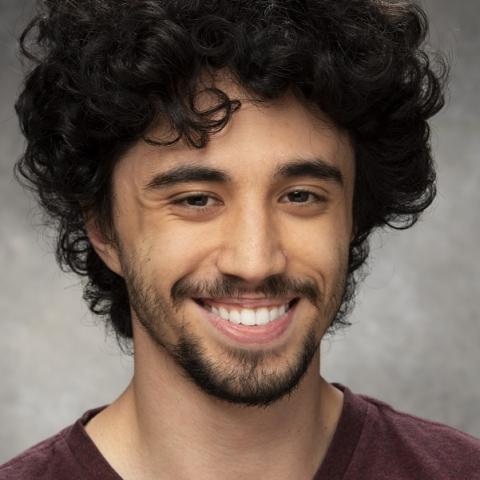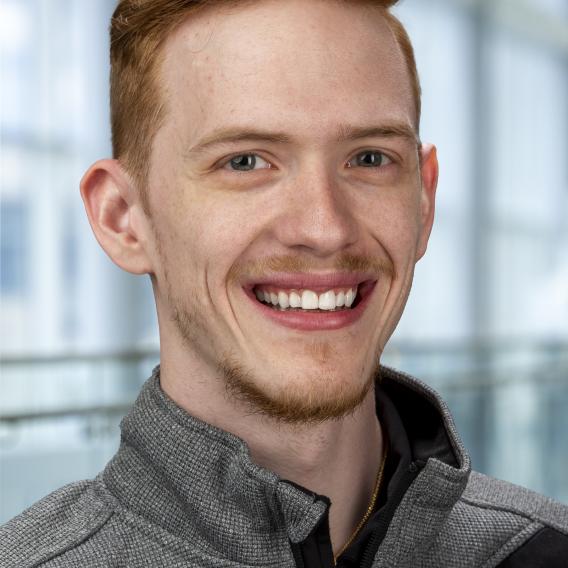Jump to: Faculty | Affiliated Faculty | Students and Postdocs | Research Staff | Administrative Staff | Alumni
Faculty
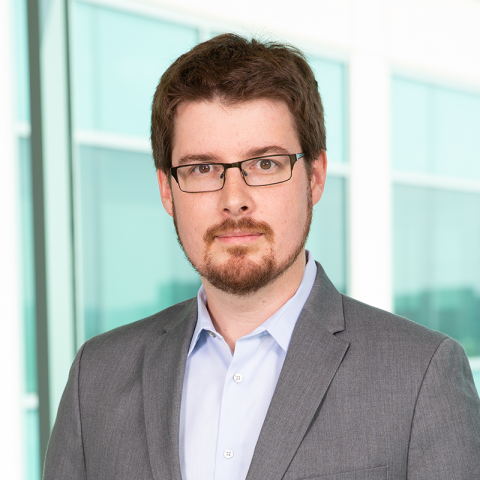
Jacques Lux, Ph.D.
Director of Ultrasound Research
Associate Professor of Radiology and Biomedical Engineering
Director of the TRUST Program
Lab Website
Dr. Jacques Lux is a chemist with deep expertise in materials science and formulation for drug delivery and medical imaging, including MRI, PET, optical, and ultrasound imaging. He earned his PhD in chemistry from the University of Strasbourg in France in 2009 under the mentorship of 2016 Nobel Laureate Jean-Pierre Sauvage, PhD. He further advanced his training through postdoctoral fellowships at The Scripps Research Institute and UC San Diego, focusing on supramolecular chemistry and nanomedicine. In 2015, Dr. Lux joined the Department of Radiology at UT Southwestern as an assistant professor and a founding member of the Translational Research in Ultrasound Theranostics (TRUST) program. In 2025, Dr. Lux became the director of the TRUST program.
Dr. Lux’s research focuses on developing innovative ultrasound-guided drug delivery platforms. He has created advanced microbubbles that significantly improve the loading and delivery of genetic material and small molecule drugs. MUSIC (Microbubble-assisted UltraSound-guided Immunotherapy of Cancer), one of his platforms, has been shown to activate immune responses and drive strong anti-tumor effects in preclinical breast cancer models, and also to enhance the efficacy of immune checkpoint blockade therapy in murine melanoma.
Building on this success, Dr. Lux is expanding this platform to enable image-guided, targeted delivery of treatments to both immune and tumor cells with exceptional precision. His work holds great promise for advancing cancer therapies that stimulate the immune system or silence cancer-driving pathways.

Caroline de Gracia Lux, Ph.D.
Assistant Professor
Dr. Caroline de Gracia Lux is a chemist with a background in materials chemistry and formulation, specializing in the design and development of acoustically active materials for theranostic applications.
As a graduate student at the University of Strasbourg under the mentorship of Dr. Marie Pierre Krafft, she focused on the design, synthesis, and application of fluorinated molecules for the construction of complex self-assembled nanoscale systems. During her postdoctoral training at UC San Diego with Dr. Adah Almutairi, she worked on the design and formulation of nanoparticles for drug delivery and imaging. Her research utilized synthetic polymers engineered to disassemble in response to external light stimuli or elevated hydrogen peroxide levels characteristic of pathological conditions.
In 2015, Dr. de Gracia Lux joined UT Southwestern co-founded the Translational Research in Ultrasound Theranostics (TRUST) program, where she developed novel ultrasound contrast agents for cancer imaging and therapy.
Her current research interests include the development of advanced ultrasound-based platforms, such as phase-change contrast agents, bioresponsive microbubbles, and liver phantoms that mimic the size of fat vesicles observed in metabolic dysfunction-associated steatotic liver disease (MASLD). Her long-term goal is to enhance clinicians’ capabilities in disease detection and treatment through innovative imaging technologies.
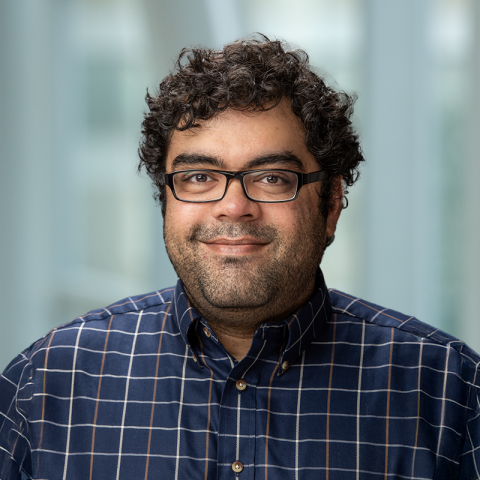
Shariq Ali, M.D., Ph.D.
Shariq Ali is a graduate of the MD/PhD program at the University of Texas Medical Branch, where he earned his PhD in Pharmacology and Toxicology under the mentorship of Erik Rytting, PhD. His doctoral research focused on the interaction of drug-loaded nanomaterials with the placenta and other biological barriers, and how these interactions could influence drug concentrations in fetal circulation.
Following the completion of his MD/PhD, Dr. Ali joined UT Southwestern as a resident in Diagnostic Radiology, participating in the Clinician Scientist Training Program (NIH NIBIB T32). Here he joined the TRUST Program, where his work centered on developing and characterizing bioresponsive ultrasound-based contrast agents.
Dr. Ali’s current research interests include (a) the development of microbubble-based platforms for ultrasound-guided therapy and (b) the creation of smart ultrasound contrast agents for noninvasive detection of pathologic conditions in tissues.
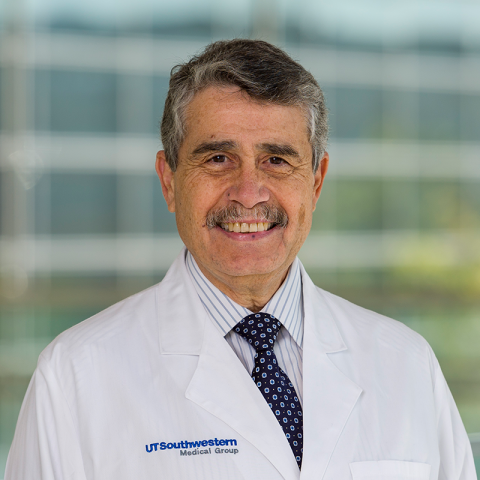
Robert Mattrey, M.D.
Professor
Dr. Mattrey is a Professor of Radiology and the Advanced Imaging Research Center (AIRC) at UT Southwestern, whose clinical interests include extracting physiological data from clinical images, particularly when using ultrasound. He joined the faculty at UT Southwestern in July 2015 with a Cancer Prevention Research Institute of Texas (CPRIT) Established Investigator Award and co-founded the TRUST program. The main focus of Dr. Mattrey’s research is contrast media in general and molecular imaging in particular, with an emphasis on ultrasound solutions. Over the past 30 years, he has translated several agents from concept through preclinical validation to the clinic, including multicenter trials, with two of these receiving FDA approval.
Dr. Mattrey developed a clinician-scientist training program in radiology at UT Southwestern as he did at UCSD before and was awarded a T32 training grant to fund this effort with a successful competitive renewal. He is developing a similar program. He currently spends two days per week on the clinical ultrasound service. His continued clinical exposure has strengthened his position as a translational clinician-scientist by continually refining his research objectives.
Affiliated Faculty
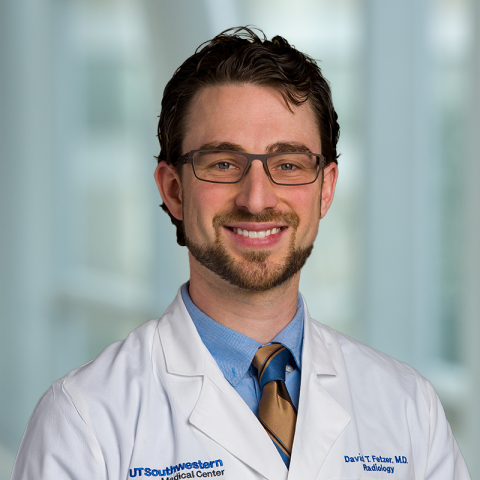
David Fetzer, M.D.
Associate Professor
Medical Director, Ultrasound
Director of CACTUS
David Fetzer's complimentary background in imaging science and interest in translational research constitutes the basis for his work in multimodality testing and quantitative imaging, particularly in metabolic, hepatobiliary, pancreatic, thyroid, and lymph node imaging.
Dr. Fetzer is also Director of the Collaborative for Advanced Clinical Techniques in Ultrasound (CACTUS), a clinical laboratory drawing upon expertise from radiologists, medical physicists, industry partners, and various medical specialists focused on cutting-edge clinical care and establishing an environment for clinical and translational research in ultrasound.
Students
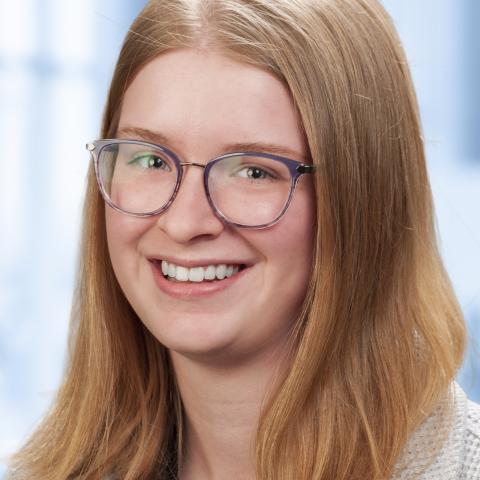
Postdocs
